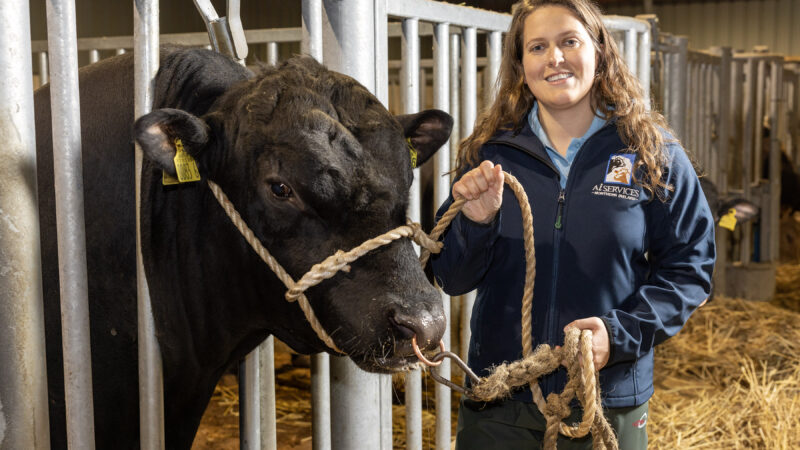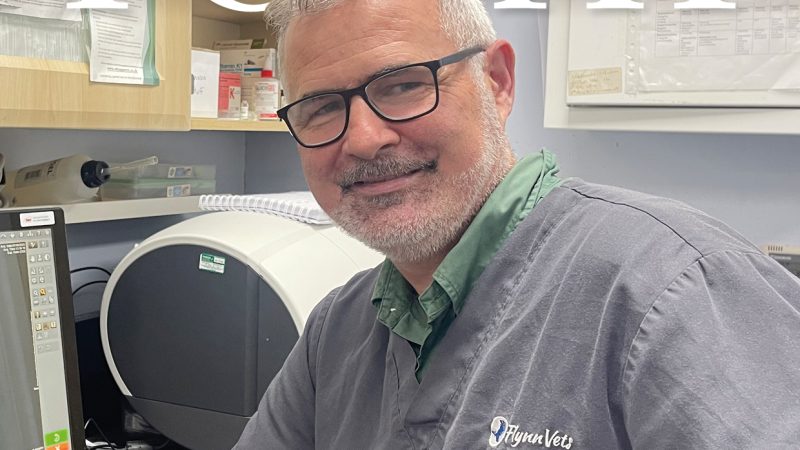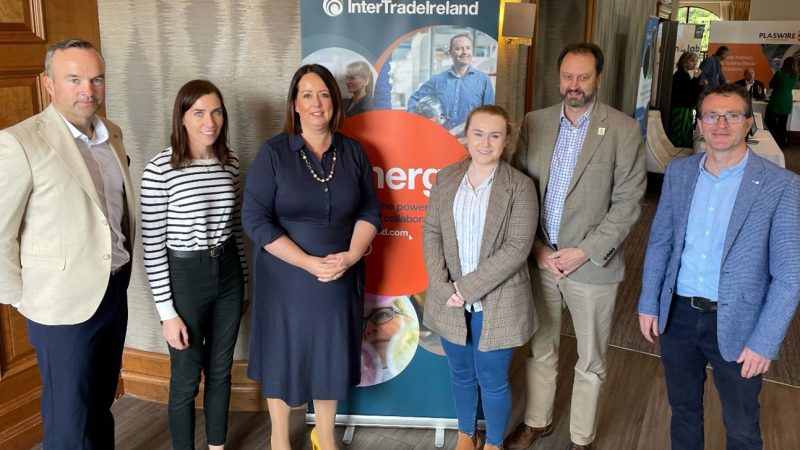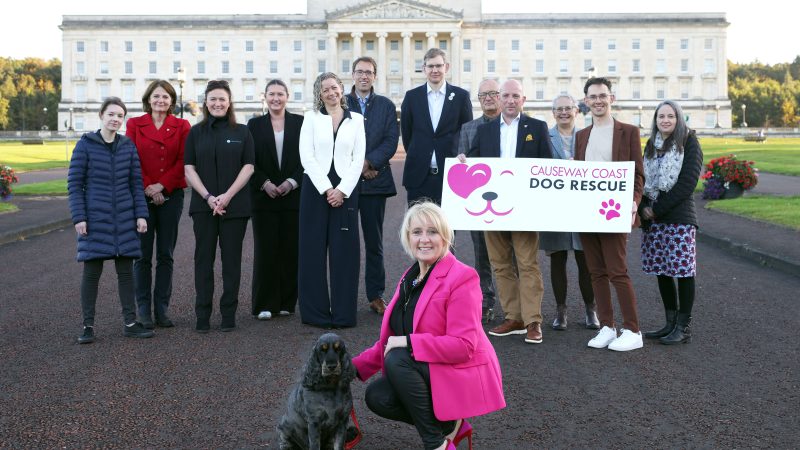Veterinary controls on the front line

Chief Vet Robert Huey unpacks the problems and possible practical solutions
The NI Protocol has placed a new onus on vets when it comes to carrying out checks on goods at ports. Northern Ireland Chief Vet Dr Robert Huey unpacks the problems and looks at how practical solutions may be found.
“On the 31st December 2020 at 11.00 pm, the United Kingdom, including Northern Ireland (NI), left the European Union (EU).
“Under the ‘Northern Ireland Protocol’, (agreed as part of the wider Withdrawal Agreement between the UK Government and EU in October 2019) Northern Ireland continues to adopt EU Single Market regulations on goods and on a wide range of animal and plant health law.
“With NI remaining in the EU Single Market, the UK Government and the EU agreed to put measures in place to protect the integrity of the EU Single Market from goods produced, or imported into Great Britain that, over time, may no longer meet EU regulatory standards, particularly those relating to animal, plant and public health, making their way into NI. As a result the Department of Agriculture, Environment and Rural Affairs is legally required by the EU to facilitate checks at Points of Entry (PoE) into NI for goods moving from GB to NI. (Checks at NI PoE are governed by EU Regulation 2017/625, the ‘Official Controls Regulations’ and its many implementing regulations.”
Northern Ireland Points of Entry (POE)
“Designated Points of Entry (PoE) into NI are currently located at Belfast, Larne, Warrenpoint and Foyle Ports. The short timescale for their construction, just over 7 months, did not allow for the completion of permanent facilities by the 1st January 2021, so existing buildings had to be repurposed and temporary facilities erected.”

Checks
“When goods arrive into NI from GB there are three checks that are carried out at a simple level these are;
“Documentary check – of the various Export Health Certificates, Phytosanitary certificates and fish catch certificates against the detail of the Common Health Export Documents (CHEDs). In addition to these there are additional certificates to confirm ‘Marketing Standards’ and organic status.
“Identity Check – to ensure that the description of goods match the information on the relevant documents
“Physical check – this involves unloading the goods, inspecting and sampling if required.
“Goods eligible for checks include live animals, livestock, horses, chicks, fish and bees, plants and plant products, timber and seeds, fruit and vegetables, all food and products of animal origin, a category of all high risk foods not of animal origin, feeds and animal by-products.
“The above processes are complicated and extremely specialised. Adapting to these new processes within such a short period of time has proved very challenging for businesses, haulage companies, certifying officers in GB and my veterinary and inspector colleagues here in NI.

“When planning for the new trading arrangements coming into force on 01 January 2021, it became clear to the Department that it would not be practically possible to carry out the full range of checks on goods due to the number of staff available and the limitations of the current facilities at the ports.
“The priority for the Department was to strike a balance between and keeping goods moving in order to supply supermarket shelves and manufacturers with raw materials, and operating within the legal requirements placed upon the Department. This presented a real challenge.
“In the autumn of 2020 I, along with the UK Chief Veterinary Officer, Christine Middlemiss, explored with the EU Commission any flexibilities that may exist within the legislation of a technical nature. These included;
“The use of electronic certification and online document checking, as set out in EU Regulation 2020/466, which was introduced to assist the movement of goods during the Covid-19 pandemic. This would involve administrative officers carrying out this work, if possible, before the consignment has left Great Britain for travel to NI.
“The use of seal checks (with official seals applied to freight units at point of dispatch by authorised personnel) as an alternative to identity checks, under the conditions described in Article 3 of EU Regulation 2019/2130;
“The flexibility to vary from the baseline frequency of physical checks, as laid down in Article 5 of Regulation 2019/2129, to checks based on a veterinary risk assessment;
“These flexibilities were further augmented on the 19 December 2020 by a series of Unilateral Declarations by the UK government which postponed, for a period of three and six months, the need for full certification of retail goods and which permitted certification of fresh minced meat and preparations such as sausages, for which there was no model certificates available. These so-called ‘grace periods’ have recently been further extended unilaterally by the UK government until October, prior to a further phasing in period.”
Number of checks
“For the first few weeks after the introduction of the new import system in January 2021 there was a reduced volume of traffic moving into NI from GB. This was in part due to trader concern as to how the process would work and also as a result often companies moving goods during December and stockpiling.”
“The total number of freight units moving into NI has now settled at approximately 9200 per week, of which 2000 contain goods requiring veterinary checks. These 2000 freight units require a total of approximately 2200 Common Health Entry Documents of which 80 are for animals, 160 plants or plant products and around 2000 products of animal origin.

“Analysis of EU data demonstrates that NI processes 20% of the EU’s total documentation for this category of goods. This is more than than any EU Member State, including France, and more than three times as that of Ireland.”
EU oversight
Our work to carry out the checks is overseen by veterinary colleagues from the EU Commission, who have experience of similar checking regimes across the EU. Their role is to advise and assist but also to reassure the EU Member States that the UK government is committed to implementing the Northern Ireland Protocol. I participate in weekly meetings, along with CVO UK and Defra colleagues, with EU Commission senior veterinarians, to discuss any issues or problems we may have encountered with our checks, progress towards better compliance and other UK/EU veterinary issues.
Certification issues
“From the 01 January 2021, there have been issues with the conditions introduced through the certificates required under the new regime.
“Health requirements for breeding sheep led to the premature movement of hundreds of ewes into NI before the deadline and the requirement for a residency period for cattle continue to hinder the movement of pedigree cattle to sales in Scotland.
“Barriers exist to the movement of seeds (including potato seed) from Scotland, fowl and caged birds attending and returning from shows, and many others. However, the most problematic issue has been with regard to the movement of pets from GB and the requirement for rabies vaccination in dogs, certification and treatment for tapeworms. Discussions are taking place between the UK government and the authorities in Dublin to discover if a flexibility can be uncovered.
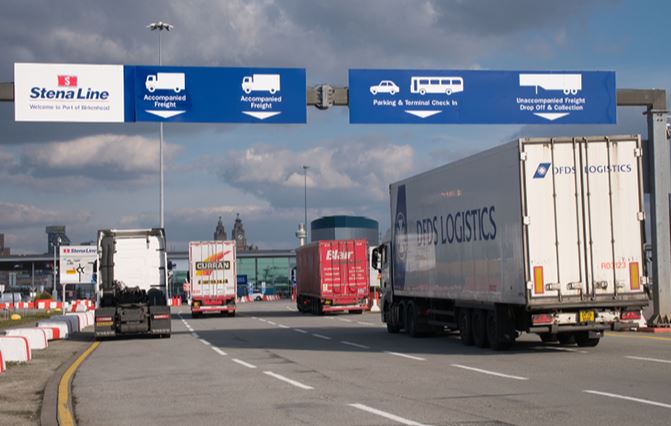
“In the meantime, and to allow time for these changes to be communicated and allow travellers time to prepare for the new documentary and health requirements, there will be no routine checks carried out on those travelling with pets from GB to NI until 1 July 2021. DAERA is currently developing a process for the implementation of compliance checks from 1 July 2021, and I will further consider how and when I will ask the public to take the first step towards compliance with the legal requirement.”
What next?
“The ‘Specialist Committee’ is the correct forum to discuss and resolve any perceived issues with the NI Protocol. Any recommendations will be presented to the ‘Joint Committee’. It is through this mechanism that I hope practical solutions can be found and implemented in response to any problems raised.
“However, the rate of progress will be determined by the outcome of political discussions in Europe, London and here in Northern Ireland.
“In the meantime, I and my colleagues in DAERA, as public servants, will continue to do our very best to serve the public in Northern Ireland by carrying out the essential work that we are required to do under the legal framework.”

